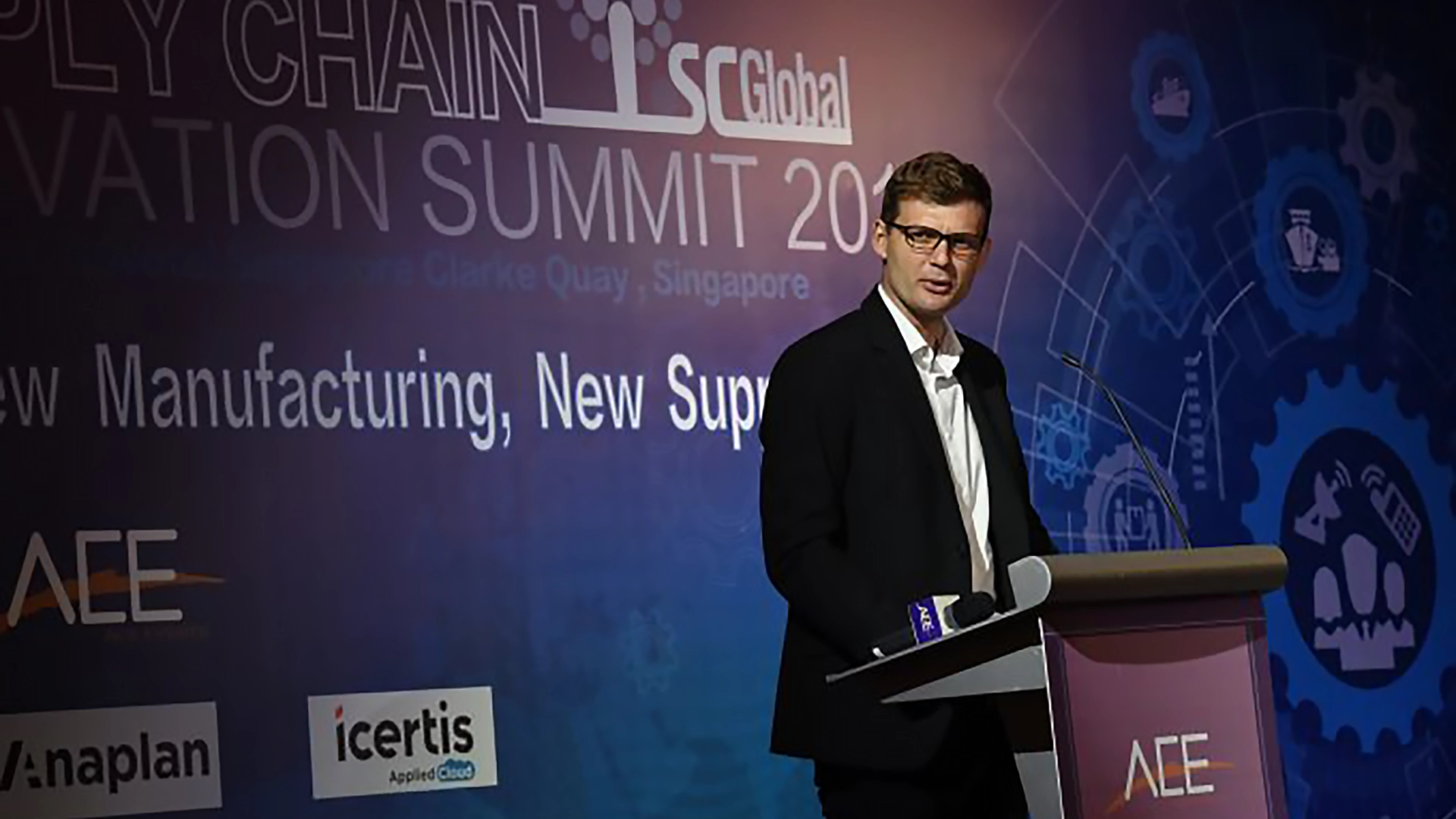Logistics 2020: Big Data, Sustainability, and Talent – An Interview with Radu Palamariu

The supply chain and logistics sector is dynamic. Data analytics, robotics and IoT, are just some of the trends that are driving rapid transformational change in our industry. At the same time, sustainability concerns are growing. This requires us to rethink and future-proof our operations. As is the case for many industries today, we are also facing an additional challenge: effectively attracting and retaining top talent – something that is at the core of every business.
I invited Radu Palamariu for an interview on these topics. Last time, I was on the other side of the conversation when I was a guest on Radu’s podcast; now the tables have turned and I am happy to ask Radu some burning questions!
Welcome and thank you Radu, for agreeing to do an interview for my blog Sabinext. As a headhunter and podcast host, you meet and speak to many industry leaders. What are the three hottest topics industry leaders talk about at the moment?
When speaking to logistics leaders, a returning topic of conversation is data. A handful of organizations are already very advanced in how they use data. They deploy advanced analytics, visualisation tools, and machine learning to optimize their supply chains.
The majority, however, still operate at a spreadsheet level. For these companies, gathering accurate data on their operations is a challenge. Getting the data right in order to make better decisions will, therefore, be a core focus for 2020 and the years to come. It may sound quite basic, but getting the basics right can be hard.
Another often-discussed topic is sustainability. We are increasingly aware that supply chains need to become more sustainable, resource-efficient, and environmentally friendly. As a result, more and more initiatives are coming up that work towards these goals.
In my view, most companies are still not doing enough. But I hope that in the near future this will change. Sustainability is definitely at the top of the agenda for many supply chain leaders – more than ever before.
It is also encouraging to see that some companies that are leading the way, are making their breakthroughs readily available to others. For example, Colgate publicly shared the recyclable toothpaste tube so that other companies can use the same formula.
The third hot topic is talent. People are at the core of every company. And supply chain leaders consistently confirm that the key to success is having the right people, and investing constantly in their development and retention. Having a compelling employer brand to attract talent has become more important these days. Being able to effectively compete for and attract the right talent is what will make the difference between winning and losing in the long-run.
Our planet has become a greater concern. How is the sustainability discussion impacting the logistics industry now and for the years to come?
I personally believe that we are running out of time. I do not want to sound too apocalyptic, because I am an optimist by design, but I think we need to be proactive and act fast. This holds both for individuals and companies. All of us can do small things to reduce, reuse and recycle. My daughter, for example, is already learning in school which measures she can take in daily life.
For companies, whether we are talking about manufacturing or logistics, there are lots of reasons why being sustainable makes sense and saves costs. And in those cases where it doesn’t, we can see examples of how companies collaborate and pull resources together to come up with feasible solutions. In India, for example, Coca-Cola and PepsiCo India joined to launch a first-of-its-kind waste management venture to reduce and recycle packaging. And, there are many other inspiring examples. The bottom line is: all of us need to act; and fast! Afterall, there is no planet B. We need to take care of the one we have.
As a headhunter, what is the main advice you give to supply chain and logistics leaders on how to best position themselves?
My most important advice is to start sharing why their work is meaningful and how it helps others. Supply chains and logistics make the world go round. In my perception, most supply chain leaders are fairly introverted. They are shy to share their stories. This can be detrimental both inside and outside of their organization.
Inside organizations it actually does not take too much effort to communicate how the supply chain is really the make-or-break of any manufacturing business. Being a good storyteller has proven helpful to move from a Chief Supply Chain Officer position into a CEO role. Tim Cook at Apple, Mary Barra at GM, or Annette Clayton at Schneider Electric, are all examples of this. Outside of the organization, telling stories and sharing how exciting the industry truly is, is key to attracting top talent.
How can leaders beat the retention game and hold on to their top talent?
I guess, this pretty much boils down to the fundaments of leadership. People follow leaders who are good human beings. Leaders who listen, give good feedback, and say “thank you”. Leaders who take the time to understand each team member, and pull teams together to work on a shared goal. Employees crave authentic leadership. Leaders need to be willing to speak the truth and show vulnerability. Don’t try to be politically correct all the time; be real.
Being able to effectively lead through change can help to retain talent. Especially in today’s rapidly changing corporate world. I heard a senior leader once say that it would be so much easier to drive technological change if people’s mindsets would not be so hard to change. But that is exactly what leaders need to do; get everybody on the same page and working towards a shared vision. Only when people understand where the journey is going, they will be able to commit to the necessary change process.
It’s the start of a new year, a time to reflect and look forward. Which takeaways from last year will you take with you for 2020?
There are many things I will take with me from last year. One of the most fulfilling projects for me is definitely the Leaders in Supply Chain podcast. This started as and still is a side-hustle, but it has allowed us to connect to so many professionals all over the world, and enabled me personally to gain many great relationships and friendships. This brings me back to my earlier thought: I encourage everybody to share their stories. Put out content. Share what you are passionate about. It’s a way to make connections, grow your network, and develop new opportunities. And today, with LinkedIn, we have the tools to do so.
Another personal learning for me has been to be myself and not overthink things too much. I used to be very careful about what I was sharing on social media. But I came to the conclusion that ultimately what matters most is that the intention behind it is positive. You will always have some critics. The key is that you get to learn so much from others and make valuable connections, as long as you have the courage to put yourself out there.
Many thanks for the interesting interview, Radu!
As a leader in the logistics industry myself, I have also seen that sharing content and connecting through social media creates great value – professionally and personally; inside your organisation as well as outside. I encourage other professionals to also take the leap and start sharing their stories.
The logistics industry is definitely going through a transformation, and I agree, that being able to leverage data in a smart way is key to stay competitive. Additionally, sustainability concerns set new requirements for our industry. Dealing with these changes in an agile manner will help us to become more future-resilient.
What are the biggest trends in future supply chain and logistics in your view? Join the conversation with me in the comment section and on my LinkedIn and Twitter accounts.






